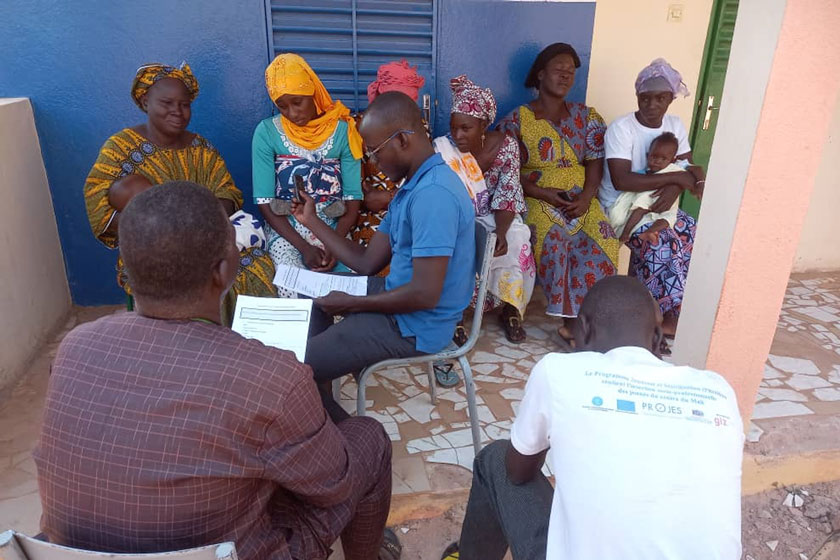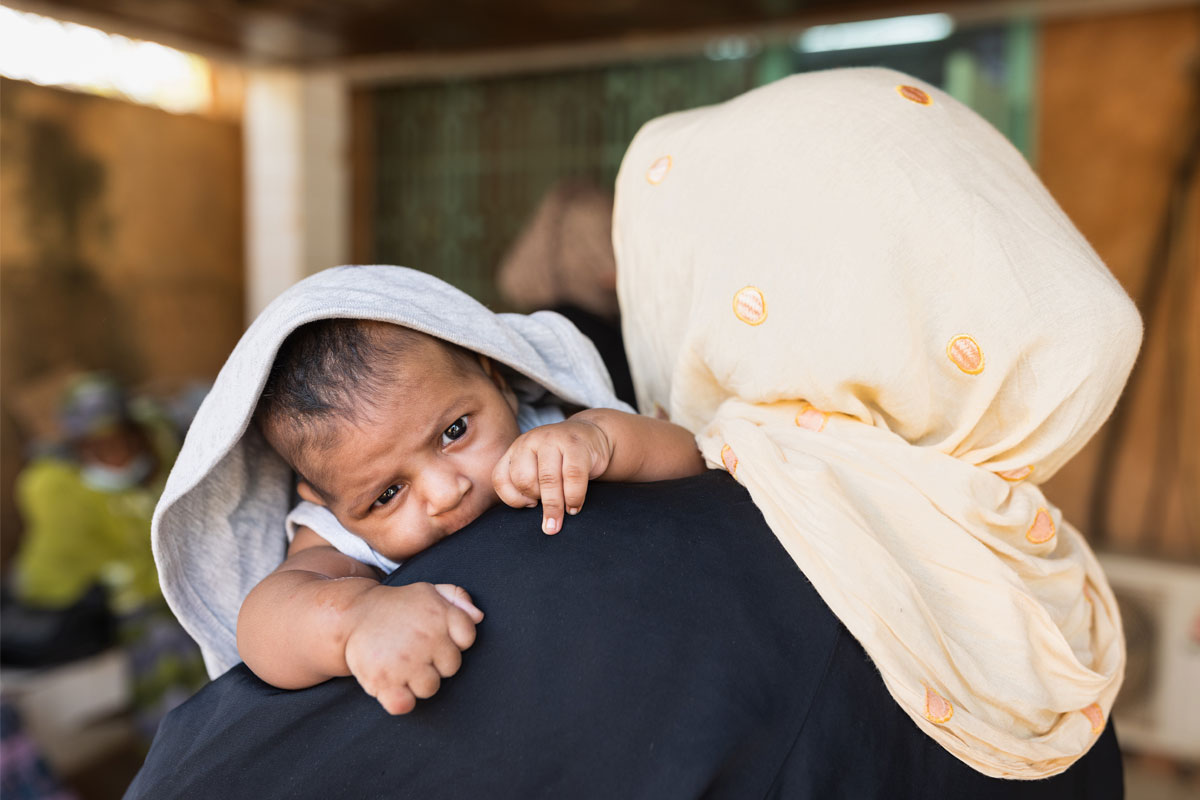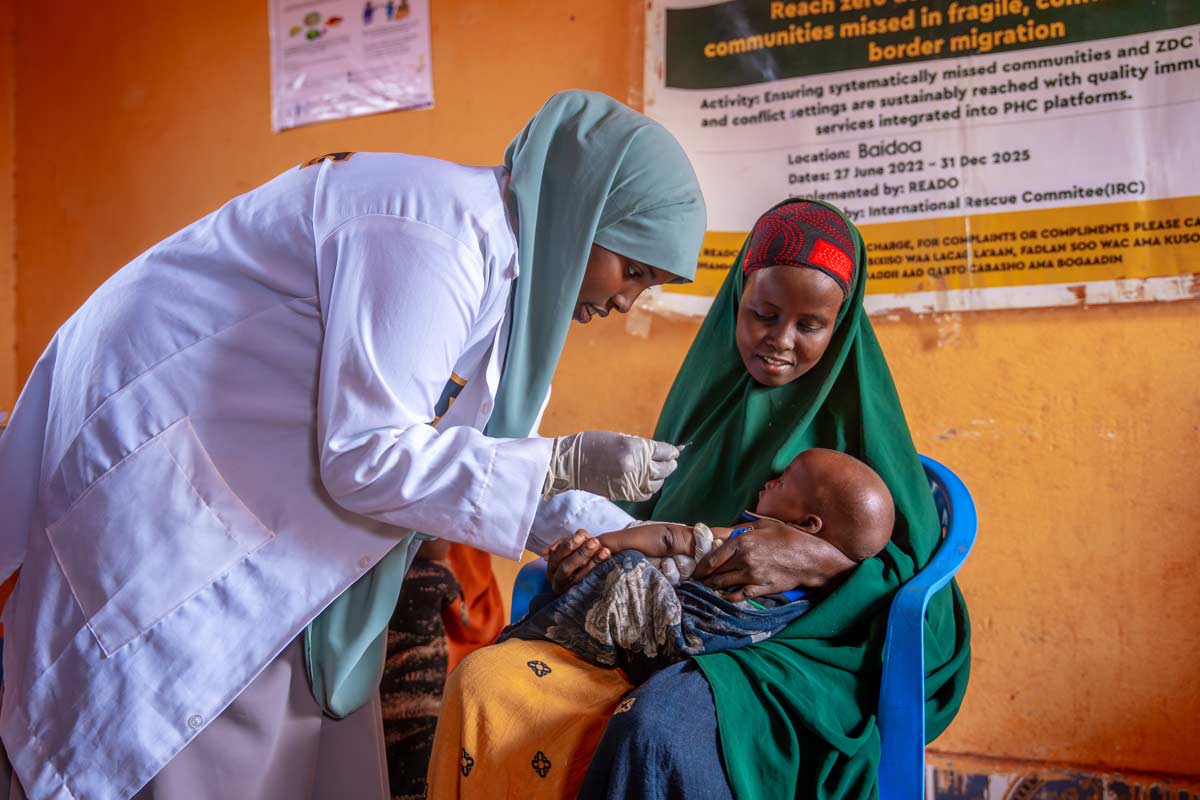Catching up to the challenge: Lessons learned from Ethiopia’s journey to reach missed children
The pandemic hit routine vaccine coverage hard. In response, Ethiopia developed new guidelines to guide catch-up campaigns, helping to prevent a generation from missing out. What can we learn from their efforts?
- 7 July 2023
- 5 min read
- by JSI , Samantha N Noor , Tewodros Alemayehu , Kibrom Abraham , Melkamu Ayalew

The COVID-19 pandemic demonstrated how quickly children could fall behind on life-saving vaccinations, highlighting the importance of "catch-up vaccination" – vaccinating individuals who, for various reasons, have missed or not received their eligible doses of vaccines according to the national immunisation schedule.
Against a backdrop of ongoing conflict, natural disasters and high numbers of zero-dose children, Ethiopia rose to the challenge by developing national catch-up vaccination guidelines. The development of these guidelines provides invaluable insights for other nations seeking to fortify their immunisation programmes.
It is crucial to strengthen ongoing monitoring and tracking systems for children's immunisation statuses.
Catch-up vaccination policies and schedules are essential elements of immunisation programmes, yet many countries lack such frameworks. In response to the considerable decline in routine vaccination due to the COVID-19 pandemic, the World Health Organization (WHO) developed global-level guidance for planning and implementing catch-up vaccination, with the goal of identifying and vaccinating those who miss routine vaccine doses at the earliest opportunity.
Despite making significant progress in routine immunisation (RI) programming over the past few decades, Ethiopia still has high numbers of zero-dose children, ranking among the top five countries globally.
Additionally, due to conflict and COVID-19 vaccination, Ethiopia had backslid on its Pentavalent1 immunisation coverage from 76% in 2019 to 70% in 2021, which increased the number of zero-dose children in the country.
To address this pressing issue and the lack of existing guidance in the national immunisation strategy on missed or late vaccination, the Ethiopian Ministry of Health (MoH) took action to develop national catch-up guidelines in 2021, which received approval for roll-out in 2022. This significant milestone not only fills a pivotal gap in the country's immunisation programme but also highlights three key takeaways from the development process that can serve as valuable lessons for other countries seeking to establish or refine catch-up guidelines.
1. Catch-up vaccination policy is much more than developing a schedule
A catch-up vaccination policy encompasses more than just creating a schedule; it should consider all aspects of the immunisation programme, such as reporting, supply and logistics, microplanning and community engagement, as well as how these components may be impacted or require adjustments.
Have you read?
For example, if a health information system is initially designed to record vaccination doses and calculate coverage for a specific age group, adjustments to recording forms and information systems must be made to accurately capture and report those doses in accordance with the new age group. Once developed, it is also important to update catch-up vaccination guidelines as needed, to align with the current context, particularly when new considerations or emergencies arise.
2. Needs and risk assessments are crucial for planning
For countries that have had extended interruptions to immunisation services, needs and risk assessments are recommended to understand the coverage gaps across multiple cohorts and identify the missed children in need of catch-up vaccination, and develop targeted interventions to close those gaps.
Additionally, it is crucial to strengthen ongoing monitoring and tracking systems for children's immunisation statuses. This can include processes such as reviewing training and adjusting workflows so that health workers assess eligibility for vaccination during any health contact, including non-immunisation visits.
Furthermore, regular tracking of immunisation defaulters and births within the community is essential to ensure that all eligible children receive timely vaccination services. This proactive approach helps to address not only the children missed, but also supports continuous efforts to identify and vaccinate children in a timely manner.
3. Partnerships and buy-in are critical for implementing effective catch-up vaccinations
Developing catch-up vaccination guidelines requires collaboration among various stakeholders. Engaging with technical experts, partners, and leaders can offer valuable insights and perspectives, while buy-in from higher-level officials and donors is crucial to align planning with overall immunisation strategies and securing necessary resources.
It is recommended that partnership should also include consulting the country's Inter-agency Coordination Committee and National Immunization Technical Advisory Groups to help ensure that the schedule and use of vaccines is aligned with the latest scientific evidence and local context and epidemiology.
Additionally, involving lower-level stakeholders can provide an improved understanding of the realities and challenges of service delivery, ultimately enabling the successful execution of catch-up vaccination strategies in the local context.
From policy to practice: what's next?
Ethiopia's catch-up guidelines serve as a commendable step towards reaching and protecting missed children, both in the immediate term and on an ongoing basis. The guidelines have the potential to expand access to vital sservices for zero-dose and under-immunised children within the country.
It is important to acknowledge that translating policy into practice is an iterative process that requires careful monitoring and follow-up, allowing for timely resolution of challenges. Ethiopia's experience in developing catch-up guidelines offers valuable understanding into the considerations needed to address missed or late vaccination.
By sharing Ethiopia's journey and collaborating to address challenges, we hope countries can gain insights from these lessons and work to establish effective catch-up vaccination guidelines, contributing to achieving universal immunisation coverage and improved child health outcomes globally.
For more information on the Ethiopia catch-up guidelines development process, view this brief.
Samantha Noshin Noor, JSI
Tewodros Alemayehu, JSI
Kibrom Abraham, JSI, Ethiopian Ministry of Health
Melkamu Ayalew - Ethiopian Ministry of Health









